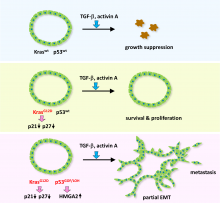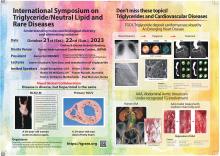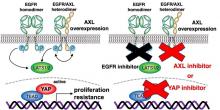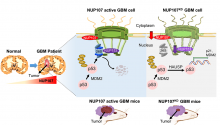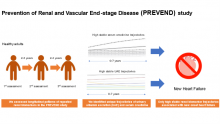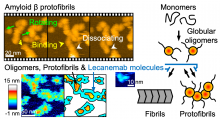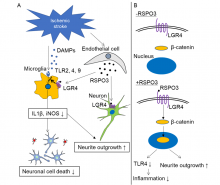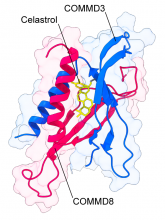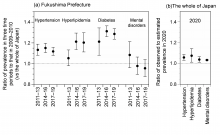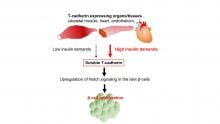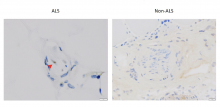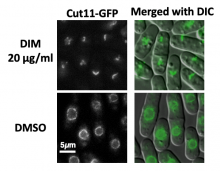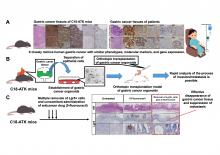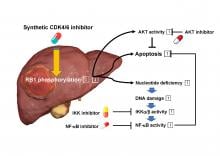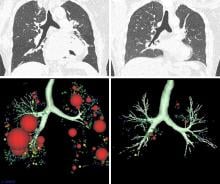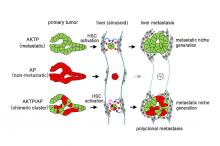Medicine & Healthcare Internal medicine
News
09 Nov 2023
Researchers at Kanazawa University report in Cancer Research how Kras and p53 mutations influence the tumor suppressor and promoter functions of a TGF- ß pathway. The findings may lead to a new approach for colorectal cancer therapy.
11 Oct 2023
A research team led by Osaka University developed a theranostics approach to both diagnose and treat certain pancreatic cancer cases. They radioactively labeled a monoclonal antibody targeting glypican-1, which is highly expressed in pancreatic cancer, then administered it to disease model mice. One label, 89Zr, showed high uptake in tumors, which would allow early detection of pancreatic cancer with PET scans. Another label, 211At, was used with alpha therapy to significantly slow tumor growth.
11 Oct 2023
The International Symposium on Triglyceride/Neutral Lipid and Rare Diseases will be held at the Kyoto International Conference Center on October 21 and 22, 2023. The symposium is organized by the International Symposium on Triglyceride/Neutral Lipid and Rare Diseases Conference Committee, which is led by Dr. Ken-ichi Hirano (Graduate School of Medicine, Osaka University) and the Japan Intractable Diseases (Nanbyo) Research Foundation.
11 Sep 2023
Patients with a specific form of chronic indigestion react differently to images of food, compared to healthy control subjects or patients with irritable bowel syndrome.
10 Sep 2023
AXL and EGFR inhibitors combined hold promise in fighting certain head, neck, and lung cancers
04 Sep 2023
Researchers from Osaka University have revealed that the expression of a specific isoform of GREB1 Is4 is induced in malignant melanoma cells by the melanocyte-specific transcription factor, MITF. They revealed that GREB1 Is4 stimulates pyrimidine biosynthesis and promotes cancer cell proliferation. Furthermore, the anti-tumor effect of antisense nucleic acids against GREB1 showed a potential new modality for malignant melanoma.
01 Sep 2023
Researchers at Kanazawa University report in Cell Reports how alterations in the nuclear pores lead to the degradation of anti-tumor proteins.
03 Aug 2023
The researchers from Osaka University showed how bone erosion caused by cholesteatoma occurs. This study showed that a subset of cells called osteoclastogenic fibroblasts expresses a protein, activin A, which causes the breakdown of the bones. Because of this discovery, novel medical treatments can be developed as first-line management for cholesteatomas.
01 Aug 2023
Researchers from Osaka University found that patients with persistently high levels of urinary albumin excretion in the long term are at high risk of new-onset heart failure. Preventive treatment associated with the lowering of urinary albumin excretion levels in these patients could reduce the risk of later heart failure or mortality.
28 Jun 2023
Researchers from Osaka University have revealed the mechanism by which increased signaling through a pathway associated with a molecule called Wnt leads to the development of liver cancer. They identified a gene called GREB1 as a target of Wnt specifically in liver cancer. This gene alters the function of a protein called HNF4α, leading to the development of cancer. They also showed that treatment of mice with antisense oligonucleotides against GREB1 had significant anti-cancer effects.
15 May 2023
Researchers at Kanazawa University report in Nano Letters how high-speed atomic force microscopy leads to insights into processes relevant to Alzheimer’s disease. Moreover, the technique is shown to be an excellent tool for studying the effect of drugs against the disease.
11 May 2023
Researchers from Osaka University identified a new protein, R-spondin 3 (RSPO3), that has beneficial effects after ischemic stroke in mice. Specifically, RSPO3 activates the protein LGR4 to trigger a cascade of cellular reactions that decreases inflammation and stimulates the growth of neuronal extensions. Moreover, administrating RSPO3 to mice one day after stroke improved recovery of sensory and motor functions. These findings provide a new target for developing treatments to improve recovery after ischemic stroke.
05 Apr 2023
Researchers from Osaka University found that the COMMD3/8 complex is implicated in the progression of the autoimmune response in a mouse model of rheumatoid arthritis. They identified celastrol, the active compound of a medicinal herb, as an inhibitor of the COMMD3/8 complex. Celastrol blocked the progression of rheumatoid arthritis. Thus, celastrol is a potential lead for developing treatments against rheumatoid arthritis.
27 Jan 2023
New research found that periodontitis, a common gum infection known to worsen other systemic diseases, could also be linked to atrial fibrosis — potentially clarifying its previously unknown connection with atrial fibrillation.
12 Jan 2023
An Osaka Metropolitan University research group recorded the autonomic nervous system activity in patients with irritable bowel syndrome (IBS) and healthy subjects using a wearable device and a proprietary smartphone application to record daily life events such as defecation and sleep. As a result, they found that sympathetic nervous system activity was activated in IBS patients from 2 minutes before defecation and continued until 9 minutes after defecation. Further research is expected to improve the quality of life of IBS patients and elucidate the pathophysiology.
04 Jan 2023
Researchers from Osaka University found that dietary supplementation with tricaprin results in coronary artery plaque regression and resolution of symptoms in patients with triglyceride deposit cardiomyovasculopathy, a treatment-resistant form of coronary artery disease. These findings represent a conceptually novel treatment for coronary atherosclerosis that paves the way toward establishing a multi-faceted approach to caring for patients with this condition.
13 Dec 2022
A study by Osaka University has shown that the prevalence of non-communicable diseases, which included hypertension, hyperlipidemia, diabetes, and mental disorders, increased after the Fukushima disaster and the COVID-19 outbreak. These findings emphasize the importance of improving post-disaster health promotion strategies and recommendations.
07 Nov 2022
Researchers led by Osaka University show that a molecule called T-cadherin can be secreted in a soluble form. Soluble T-cadherin interacts with pancreatic insulin-producing β cells via the Notch signaling pathway to promote their proliferation and increase the production of insulin. Recombinant T-cadherin stimulated Notch signaling in isolated mouse pancreatic islets, which contain β cells, indicating that T-cadherin may have therapeutic potential for diabetes.
17 Oct 2022
Researchers from Osaka University have shown that deficiency of the protein Favine can lead to accelerated development of atherosclerosis. Loss of Favine in a mouse atherosclerosis model also led to calcification and thrombus development in the blood vessels of the mice. Prior to this, no mouse models for calcification or thrombus formation existed, hindering atherosclerosis research. This work also identifies Favine and its downstream signaling pathway, known as MEF2C-KLF2, as potential therapeutic targets for atherosclerosis.
20 Jun 2022
Researchers in Japan outline preliminary research that could pave the way for a future test to diagnose ALS, a progressive disease of the nervous system.
24 Jan 2022
Broccoli may contain advantages beyond nutrition. A molecule found in broccoli, cabbage and more digests down into DIM, a compound with brighter benefits than the name implies, such as inducing cell death in breast, prostate and colon cancer. Now, researchers are beginning to understand the mechanism underpinning this molecular behavior — information that could help elucidate future anti-cancer treatments.
22 Dec 2021
We have succeeded in establishing a mouse model that develops gastric cancer closely resembling advanced human gastric cancer. Using this model, we have discovered gastric cancer stem cells, i.e. Lgr5+ gastric cancer cells, essential for the development, maintenance, and metastasis of cancer. Our study provides an experimental system that enables detailed analysis of highly malignant gastric cancer and is expected to lead to the development of a breakthrough treatment for advanced human gastric cancer.
24 Nov 2021
Researchers from the Osaka City University Graduate School of Medicine have shown in patients with early-stage hepatocellular carcinoma who received cancer treatment that eliminating the hepatitis C virus with a direct-acting antiviral treatment reduces the risk of the liver cancer progression and increases overall patient survival.
02 Nov 2021
Malfunctioning of the so-called Hippo signalling pathway within animal cells leads to irregular activity of proteins that regulate genes involved in cell proliferation. Researchers have identified a key step in the process of this aberration, opening the door to new therapeutics for cancers such as head-and-neck squamous cell carcinoma and lung adenocarcinoma.
01 Oct 2021
Paris, 29 September — UNESCO and the L'Oréal Foundation are unveiling the winners of this year’s International Prize for Women in Science, which honours five eminent women scientists with exceptional careers from the five regions of the world, as it has done annually since 1998.
06 Sep 2021
A synthetic CDK4/6 inhibitor exerts antitumor effects by forcing RB1 tumor-suppressor into an active status, but its single administration is not sufficiently effective. We find its combinatorial administration with an IKKβ inhibitor is significantly more effective in hepatocellular carcinoma treatment. Also, blockage of the IKK-NF-κB or AKT pathway enhances its effects on RB1-intact K-Ras mutated lung and colon cancers. CDK4/6 inhibitors have potential to treat various RB1-intact cancers when combined with an appropriate kinase inhibitor.
25 Aug 2021
A novel CT scan-based approach has revealed significant changes in a parameter indicating lung destruction in some asthmatics. This finding could lead to more personalized treatments for asthma accompanied by persistent airflow limitation.
15 Feb 2021
Osaka City University paves way for liver health by discovering the use of cytoglobin in anti-fibrotic therapy.
12 Feb 2021
In a study published in Nature Communications, cancer researchers at Kanazawa University identify mechanisms by which malignant tumor cells extend their toxicity to distinct cell types and in turn help them spread.
Events
Sorry, nothing coming up for this discipline
Researchers
Dr Ashfaq Ahmad Shah 'اشفاک ' born on 6 June 1992, from south Kashmir, Doderkoot ددیرکوٹ Kulgam, Jammu and Kashmir, India is the infection immunity doctoral researcher at the Graphic Era (Deemed to be University), Dehradun, UK, India. Dr Shah is pursuing novel dimensions of infection immunity pertaining to the correlation and impact of phyto-immune components termed phytoalexins and phytoanticipins on the benign immune system of human beings. This parameter of immunology is termed phytoalexin-immunomodulation scrutiny. His area of interest lies in Preclinical and clinical studies, i.e. vaccine adjuvant development, development of anti-inflammatory and antimicrobial compounds, evaluation of antibiotic resistance, study of Immuno-modulatory activities, disease model studies, protease isolation against specific protein antigens, and the discipline of Kalology including tyrosinase inhibition, PPO inhibition, skin whitening agents, kerato-peeling etc. Dr Ashfaq is a Doctoral Researcher, Reviewer and Editorial member of several journals and books. He is having several publications in journals of national and international repute. So far he has published more than thirty scopus infection/immunology/pharmacology scientific papers, including Fifteen international book chapters and two international books. Mr Shah received the Young scientist award in August 2023 for his groundbreaking academic performance in the field of infection immunity. Mr Shah has also been an editor of Wikipedia pages in medical science since 2015 with more than 1000 edits in medical topics available to medical literature worldwide.
Giants in history
Barry Paw (29 August 1962 – 28 December 2017) was a biologist and oncologist who discovered several novel genes and their functions in red blood cells.
A Japanese surgeon, Tetsuzo Akutsu (20 August 1922 – 9 August 2007) built the first artificial heart capable of keeping an animal alive.



